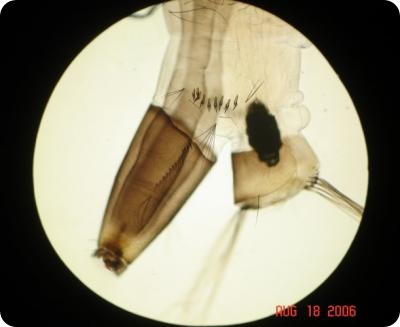Jun 5 2009
Dengue Fever (DF) and Dengue Hemorrhagic Fever (DHF) are the most important vector-borne viral diseases in the World. Around 50-100 million cases appear each year putting 2.5 billion people at risk of suffering this debilitating and sometimes fatal disease.
Dengue Fever is prevalent in the Tropics. For that reason, an interdisciplinary team of researchers from the University of Miami (UM) and the University of Costa Rica have used global climatological data and vegetation indices from Costa Rica, to predict Dengue outbreaks in the region.
The new model can predict Dengue Fever epidemics with 83% accuracy, up to 40 weeks in advance of an outbreak and provide information on the magnitude of future epidemics. The model can be expanded to include the broader region of Latin America and the Caribbean, where incidence and spread of the disease has increased dramatically over the past 25 years.
An early warning system to prevent and mitigate the spread of the disease can potentially be developed using this model, explained Douglas O. Fuller, associate professor and chair of the department of Geography and Regional Studies in the UM College of Arts and Sciences and principal investigator of this project.
"Such a tool will provide sufficient time for public health authorities to mobilize resources to step up vector control measures, alert at-risk populations to impending conditions and help health professionals plan for increased case loads," Fuller said.
Vector-born diseases, such DF and DHF, are ones in which the disease is transmitted from an infected individual to another by a biological agent. In the case of Dengue, one of four closely related Dengue viruses is transmitted to humans by the Aedes aegypti or more rarely the Aedes albopictus mosquito, sometimes with other animals serving as intermediary hosts. Most of the world's population infected by Dengue (also known as "breakbone fever") is located in tropical and subtropical areas of the globe, where the weather is dominated by rainfall.
This project looks at climate and vegetation variables that have an impact on the mosquito populations in the American Tropics, such as El Niño Southern Oscillations, sea-surface temperatures and seasonal vegetation dynamics that affect evaporation and humidity near the ground.
"We were surprised that sea-surface temperature variations in the Pacific related to El Niño can be linked to a debilitating disease," Fuller said. "Now we see more clearly that global climate oscillations such as El Niño are important drivers of disease as well"
The study contributes to the rapidly emerging field of climate and infectious disease, which addresses increasing concerns that global warming, will exacerbate certain diseases like Dengue Fever and allow the vectors to spread to more temperate areas. The findings of this study were published earlier this year in the Institute of Physics journal Environmental Research Letters.
The model predicted a major Dengue epidemic of 2005 and has also been tested on data from Trinidad and Singapore with extremely accurate results, Fuller said. Other factors that may contribute to the increased occurrence of Dengue
Fever in the Tropics are: global trade, population growth and uncontrolled or unplanned urbanization.
The University of Miami's mission is to educate and nurture students, to create knowledge, and to provide service to our community and beyond. Committed to excellence and proud of the diversity of our University family, we strive to develop future leaders of our nation and the world.